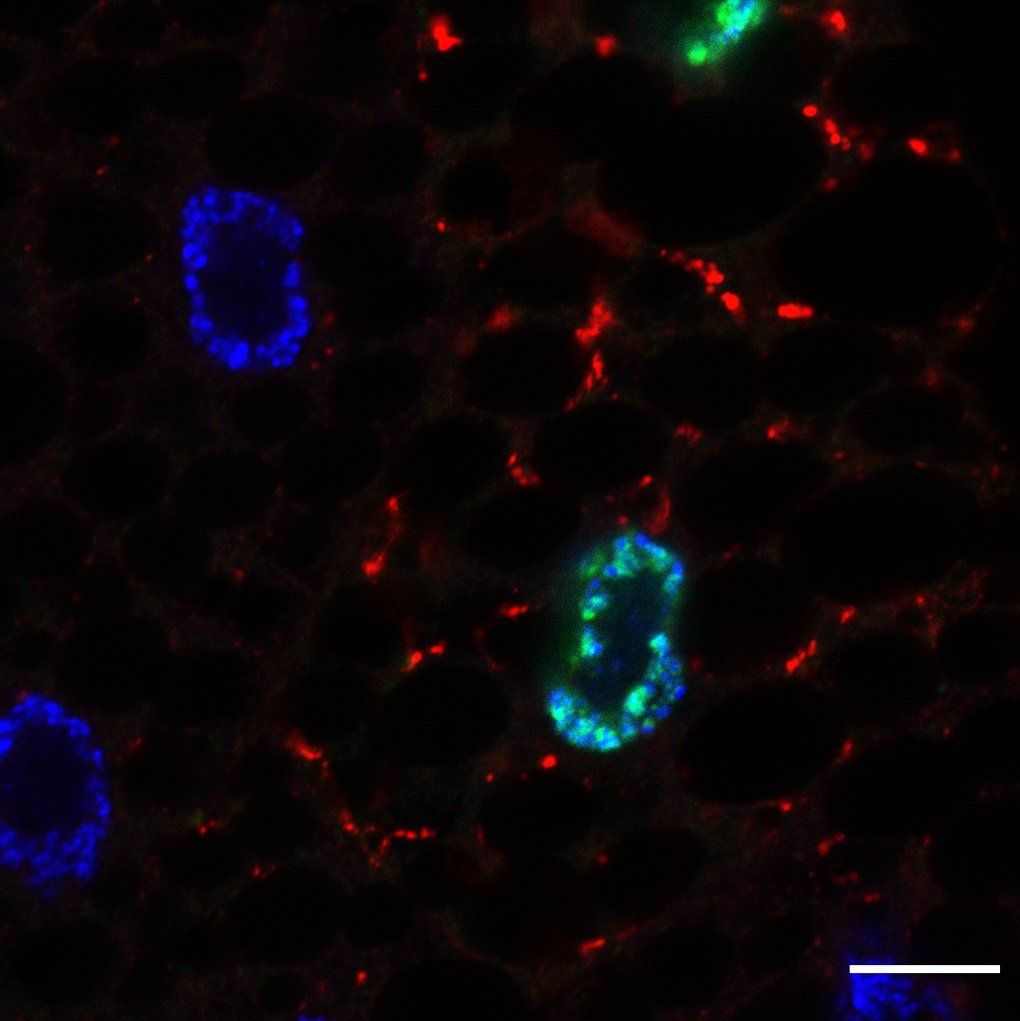Scientists Discover Proteins That Determine How Cells Respond to Fasting
Intermittent fasting, alternate-day fasting, and other forms of periodic caloric restriction are beneficial to maintain a healthy body weight and have gained popularity during the last few years. In response to fasting, cells use autophagy, a cellular self-recycling process, but little is known about how caloric restriction affects this process. New research published in the journal Cell Reports, describes the proteins cells use to activate the expression of autophagy genes.
Cells expressing GFP-Sequoia-LIR mutant (green nuclei) activate autophagy (shown by red puncta) PHOTO CREDIT: UNIVERSITY OF WARWICK

Intermittent fasting, alternate-day fasting, and other forms of periodic caloric restriction are beneficial to maintain a healthy body weight and have gained popularity during the last few years.
In response to fasting, cells use autophagy, a cellular self-recycling process, but little is known about how caloric restriction affects this process. New research published in the journal Cell Reports, describes the proteins cells use to activate the expression of autophagy genes.
According to the authors, the proteins are called Sequoia, YL-1 and Sir2, these proteins interact with the cytoplasmic autophagy-related protein Atg8a. These interactions recruit Atg8a in the nucleus to control the transcription of autophagy genes. This is the first study that uncovers a nuclear role of the cytoplasmic protein Atg8a.
Although the genetic research was done in drosophila, identifying the players in fasting induced autophagy has implications in human weight research say the authors.
"Understanding the molecular mechanisms of activation of autophagy genes during fasting will help us to use interventions to activate the autophagic pathways to maintain a normal body weight and promote healthy well-being," explained professor Ioannis Nezis, from the School of Life Sciences at the University of Warwick, (UK).
The paper 'Regulation of expression of autophagy genes by Atg8a-interacting partners Sequoia, YL-1 and Sir2 in Drosophila' by Anne-Claire Jacomin, Stavroula Petridi, Marisa Di Monaco, Zambarlal Bhujabal, Ashish Jain, Nitha Mulakkal, Anthimi Palara, Emma L. Powell, Bonita Chung, Cleidi Zampronio, Alexandra Jones, Alexander Cameron, Terje Johansen and Ioannis P. Nezis is published in Cell Reports on 26/05/2020 and is available to view at: https://doi.org/10.1016/j.celrep.2020.107695
High-res images available credit to the University of Warwick at: (saved as warwick study)
https://warwick.ac.uk/services/communications/medialibrary/images/april2020/picture1_jpeg.jpg
Caption: Cells expressing GFP-Sequoia-LIR mutant (green nuclei) activate autophagy (shown by red puncta)
CREDIT: UNIVERSITY OF WARWICK